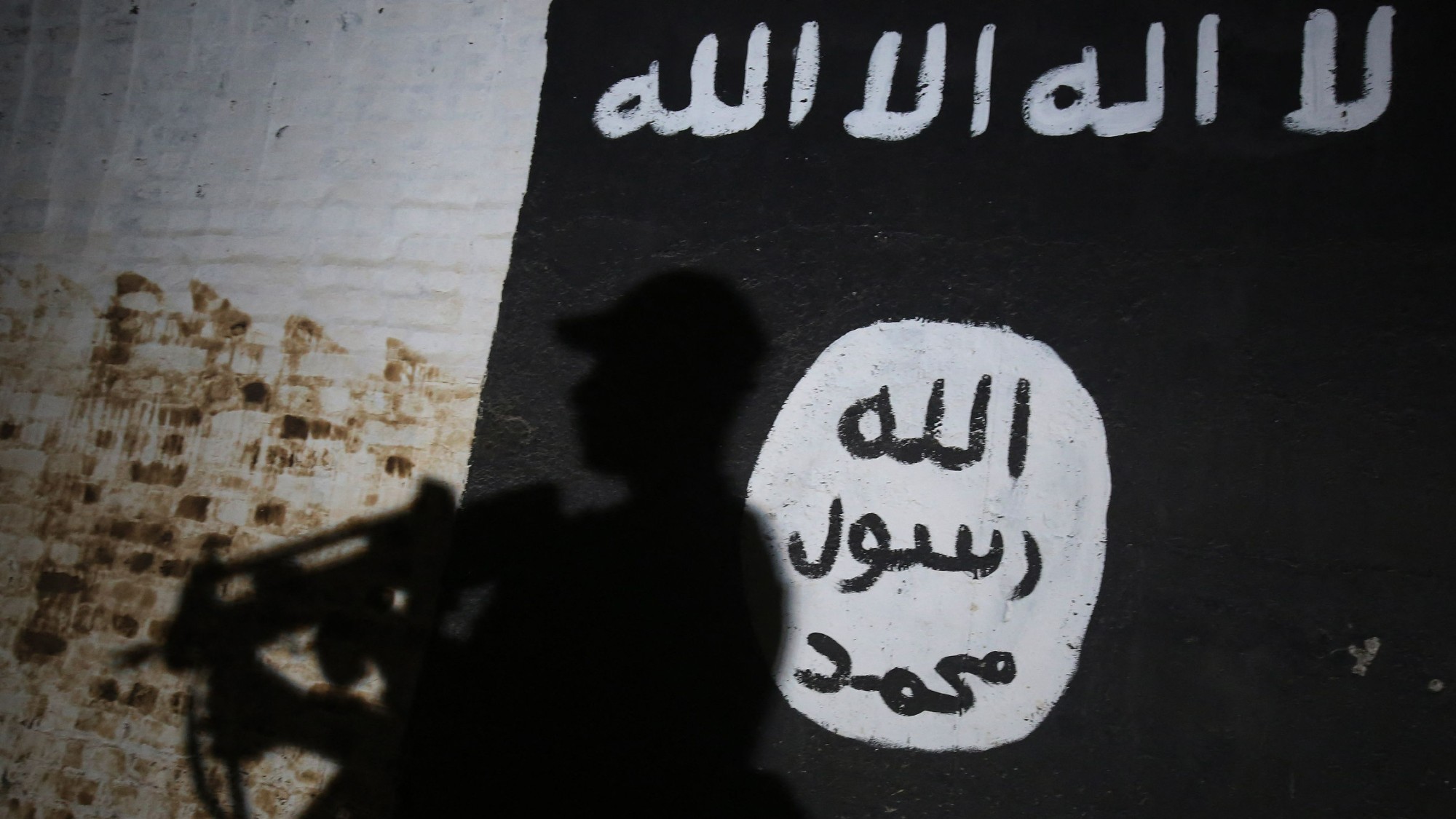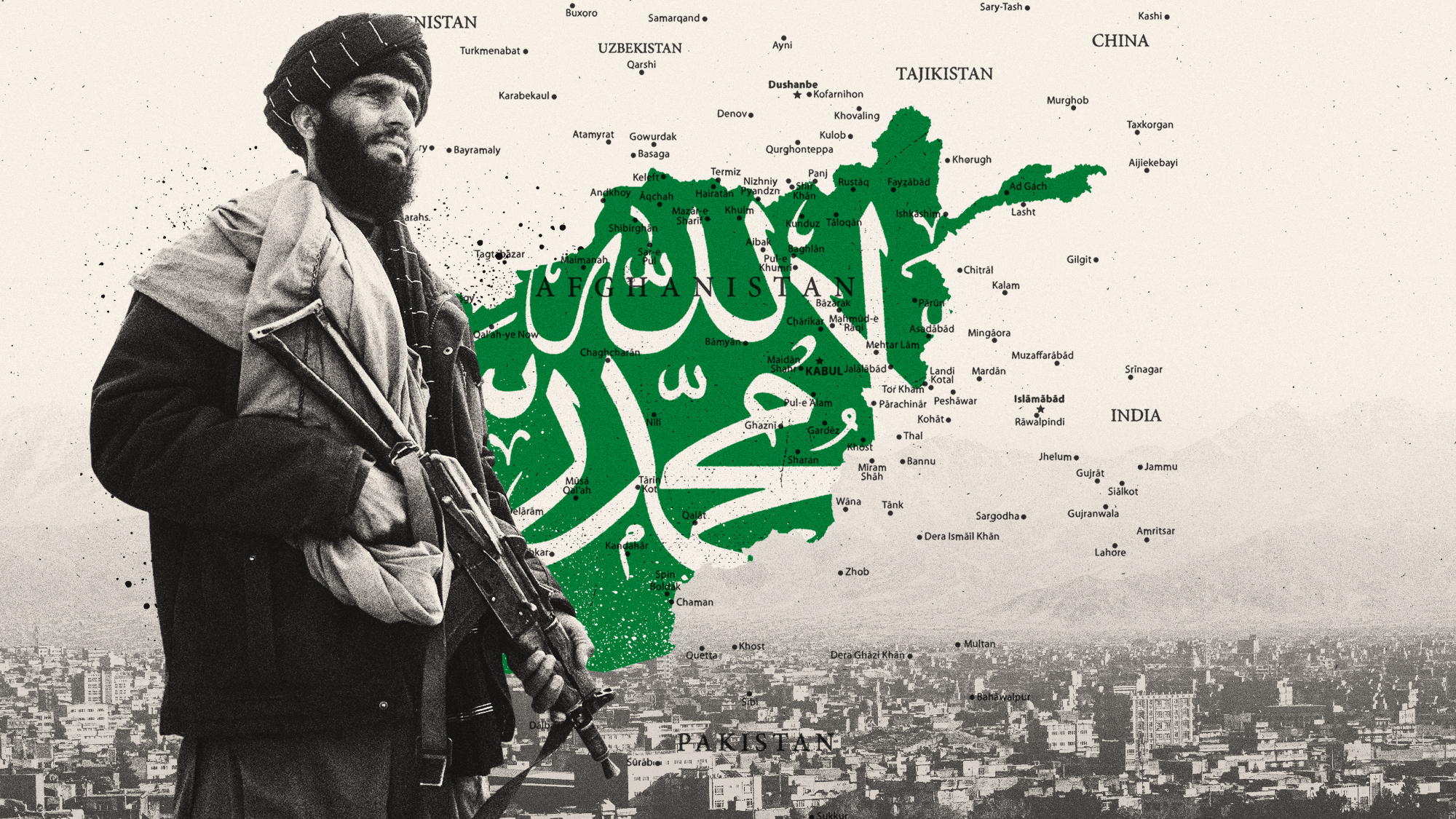Islamic State: the terror group's second act
Isis has carried out almost 700 attacks in Syria over the past year, according to one estimate

A free daily email with the biggest news stories of the day – and the best features from TheWeek.com
You are now subscribed
Your newsletter sign-up was successful
On 20 March 2019, President Trump proudly brandished a sheet of paper before White House reporters, said Adrian Blomfield in The Daily Telegraph. On it were two maps of Syria. The first, swathed in red blotches, showed how much territory Islamic State had held in the country when he became president. The second, almost perfectly white map, showed what the jihadist group now held: just one tiny area near the town of Baghuz. And that, boasted Trump, would disappear very soon.
It did, in a matter of days; but last week's deadly ramming attack in New Orleans, by a man apparently inspired by the group, is a reminder that Isis is still far from eradicated. Indeed, analysts have been warning for months that the group is having something of a revival: according to one expert, it has carried out almost 700 attacks in Syria over the past year.
Despite the loss of its "caliphate" in Syria and Iraq, Isis remains a lethal threat, said Jason Burke in The Guardian. It has established new hubs in the Sahel region and eastern Africa, and its Afghan affiliate – known as Isis-Khorasan, or Isis-K – was responsible for the mass shooting in a Moscow concert hall last year that claimed the lives of at least 145 people.
The Week
Escape your echo chamber. Get the facts behind the news, plus analysis from multiple perspectives.

Sign up for The Week's Free Newsletters
From our morning news briefing to a weekly Good News Newsletter, get the best of The Week delivered directly to your inbox.
From our morning news briefing to a weekly Good News Newsletter, get the best of The Week delivered directly to your inbox.
The group's ideas, meanwhile, continue to inspire a small number of disaffected or disturbed individuals in the West. There was reportedly a significant rise in thwarted Isis-inspired attacks in America last year – a trend attributed to the US authorities' failure to curb the spread of extremist Islamist propaganda online, and the "radicalising effects of the war in Gaza".
Governments have become more adept at heading off terrorist plots, said Eliot Wilson in The i Paper, but random vehicle attacks such as the one in New Orleans, or the one less than a fortnight earlier on a Christmas market in Magdeburg, Germany, pose a particular challenge. All lone-wolf attackers need in such cases is "determination and blood lust", and there's not much we can do to stop them short of pedestrianising all urban areas and banning public gatherings.
Preventing Isis from expanding its power bases would help curb its malign influence, said The Times. It will seek to exploit any political vacuum in Syria, where US-backed forces are currently holding thousands of Isis prisoners. Trump recently said of Syria: "This is not our fight. Let it play out." But the incoming president may have to abandon that laissez-faire attitude in office. "Domestic security partly depends on global vigilance." For everyone's sake, "Isis must not be allowed a second act".
A free daily email with the biggest news stories of the day – and the best features from TheWeek.com
-
 Switzerland could vote to cap its population
Switzerland could vote to cap its populationUnder the Radar Swiss People’s Party proposes referendum on radical anti-immigration measure to limit residents to 10 million
-
 Political cartoons for February 15
Political cartoons for February 15Cartoons Sunday's political cartoons include political ventriloquism, Europe in the middle, and more
-
 The broken water companies failing England and Wales
The broken water companies failing England and WalesExplainer With rising bills, deteriorating river health and a lack of investment, regulators face an uphill battle to stabilise the industry
-
 The fall of the generals: China’s military purge
The fall of the generals: China’s military purgeIn the Spotlight Xi Jinping’s extraordinary removal of senior general proves that no-one is safe from anti-corruption drive that has investigated millions
-
 Syria’s Kurds: abandoned by their US ally
Syria’s Kurds: abandoned by their US allyTalking Point Ahmed al-Sharaa’s lightning offensive against Syrian Kurdistan belies his promise to respect the country’s ethnic minorities
-
 Syria’s Islamic State problem
Syria’s Islamic State problemIn The Spotlight Fragile security in prison camps leads to escape of IS fighters
-
 Iran unleashes carnage on its own people
Iran unleashes carnage on its own peopleFeature Demonstrations began in late December as an economic protest
-
 How oil tankers have been weaponised
How oil tankers have been weaponisedThe Explainer The seizure of a Russian tanker in the Atlantic last week has drawn attention to the country’s clandestine shipping network
-
 The rise of the spymaster: a ‘tectonic shift’ in Ukraine’s politics
The rise of the spymaster: a ‘tectonic shift’ in Ukraine’s politicsIn the Spotlight President Zelenskyy’s new chief of staff, former head of military intelligence Kyrylo Budanov, is widely viewed as a potential successor
-
 Iran in flames: will the regime be toppled?
Iran in flames: will the regime be toppled?In Depth The moral case for removing the ayatollahs is clear, but what a post-regime Iran would look like is anything but
-
 Normalising relations with the Taliban in Afghanistan
Normalising relations with the Taliban in AfghanistanThe Explainer The regime is coming in from the diplomatic cold, as countries lose hope of armed opposition and seek cooperation on counterterrorism, counter-narcotics and deportation of immigrants